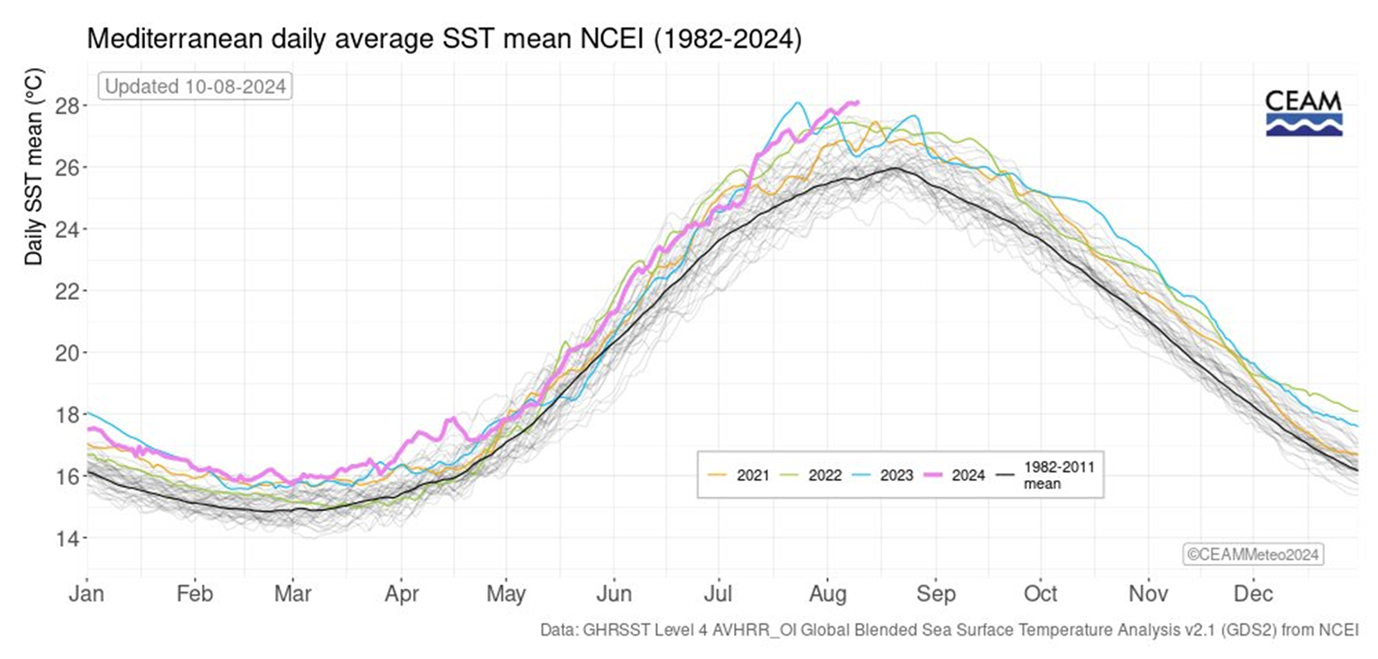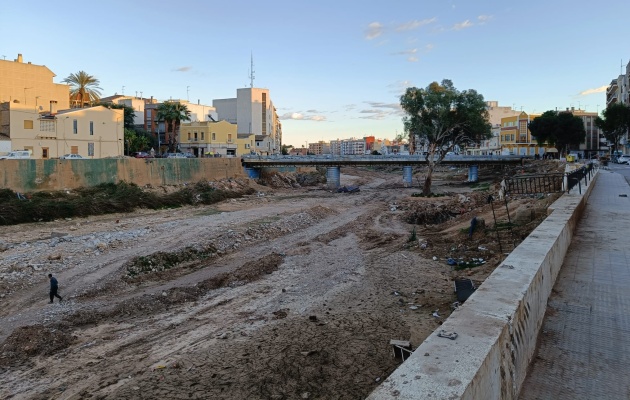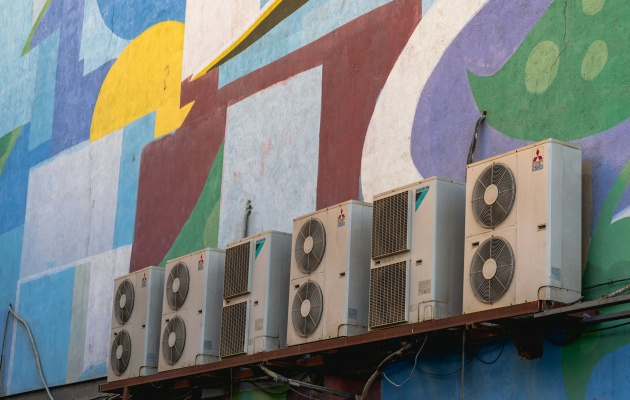From sleepless nights to natural disasters such as the one in Valencia in 2024. Christian climate researchers share their experiences from Italy and Spain.
![The Mediterranean sea in Fethiye. / Photo: [link]Dylan Alcock[/link], Unsplash, CC0.](https://cms.evangelicalfocus.com/upload/imagenes/687125c9bf08f_dylan-alcock-dR78qUSdA3w-unsplashCropped.jpg) The Mediterranean sea in Fethiye. / Photo: [link]Dylan Alcock[/link], Unsplash, CC0.
The Mediterranean sea in Fethiye. / Photo: [link]Dylan Alcock[/link], Unsplash, CC0.
The high temperatures in the Mediterranean, a sea immensely popular with both locals and tourists, have been a cause of great concern for some time to those who are closely monitoring its evolution.
The surface temperatures recorded at the end of June and beginning of July in the westernmost part of the sea exceeded the usual average by up to 5º Celsius. Swimming on coasts such as those of eastern Spain in June was already like doing so at the end of August last year.
A recent report on Spanish public television RTVE summed it up as follows: "Record temperatures in the Mediterranean are leaving us with scorching nights and more 'fuel' for future storms".
Michael Wickham, who has written extensively on ecological issues and is part of the creation care network of the Lausanne Movement in Spain, confirms that "sea temperatures in some places in the Mediterranean have already equalled or surpassed land air temperatures. And this is new", he tells Evangelical Focus.
He explains that "there are measuring stations and instruments in ports and buoys out at sea, like 'La Dragonera', near Mallorca". It was precisely this measuring point in the Balearic Islands that broke an absolute record of 31.7ºC in the water in June 2025. Many other buoys and satellites with remote sensors show that the water is warmer than ever before on many other Spanish coasts.
Year after year, the data allows to create "computer models about long-term climate trends" that show how 2022, 2023 and 2024 were exceptional.

[photo_footer] Evolution of recorded temperatures in the Mediterranean. / Graph: CEAM Meteo.. [/photo_footer]
"18 out of 20 of the highest annual temperatures have been recorded in 2023 and 2024", explains Wickham, awaiting the final data for the summer of 2025, which is expected to be even worse.
In October last year, Spain experienced its worst natural disaster in a century when a cluster of storms caused by an isolated high altitude depression phenomenon (DANA in Spanish) led to floods that devastated 75 towns in the coastal plain south of Valencia.
Evangelical Focus reported extensively on the response of churches to the enormous impact on 130,000 people affected.
This is "a major area of concern", explains Wickham. "The October 2024 DANA event in Valencia caused 227 lives lost and enormous destruction to homes, businesses and infrastructure. A warmer Mediterranean (for each degree Celsius increase there is a 7% increase in humidity) leads to a huge store of warm water and extra energy trapped as rapid evaporation takes place. The sea, like a hot water bottle, holds heat longer. When in October low pressure cold air at high altitude begins to move south, it breaks off from the global atmospheric flow from west to east in the northern hemisphere and meets this very warm, humid air over the Spanish coastline, producing rapid up currents, condensation and rapid cooling and very heavy thunderstorms".

[photo_footer] The Poyo ravine in Paiporta, Valencia, after the DANA floods of October 2024. / Photo: Joel Forster. [/photo_footer] As the Mediterranean Sea, heating 20% faster than other seas, gets warmer, "these DANAs will become larger and more frequent, thus potentially more destructive", he explains.
What can be done in areas at risk of further disasters in the future? Wickham believes that "the cost of continual reconstruction will be far greater than the cost of implementing changes to reduce the burning of fossil fuels and change to a more sustainable renewable energy model".
According to him, "what is lacking is the political will and long-term collaborative plans between different administrations and political groups in order to prevent more loss of life in the future".
But the disaster in Spain was not an isolated case. Gianluca Piccirillo details from Italy that extreme weather events have also occurred there.
He cites a few: "Landslides in the Cinque Terre, increasingly frequent avalanches or slowly melting glaciers in the Alps, river overflows in Emilia Romagna, chronic water shortages in southern Italy, recurring summer fires".
Piccirillo wrote his master's thesis in theology on some 20 evangelical documents published in the last five decades on issues related to the care of creation.
The media in Italy often talk about how "the weather has gone crazy", but the underlying problem, he says, is that "in Italy, problems are often addressed not preventively but when the emergency happens or has already happened".
"What worries experts or environmental associations", says Piccirillo, is that "there is an infrastructural problem with the water supply. It has been known for years, but there are no forward-looking policies to limit its distortions, nor are there any actions to modernise or make existing infrastructures fully functional or capable of supporting ever-increasing loads during emergencies".

[photo_footer] Air conditioners. / Photo: A. Forouzani. [/photo_footer] On one side, "the economic fallout from these phenomena is of concern". The main questions raised in the media are: "How will the state help those impacted rebuild their homes? How long will it take for an agricultural company, for example, to have their land productive again? How long will it take to restore infrastructure (roads, telecommunications, etc.)?"
What else could happen if the sea continues to warm at this rate?
"Rising temperatures will impact fisheries, tourism, agriculture", says Piccirillo, "but also biodiversity: as invasive and unchallenged non-native species arrive (like the blue crab, wasp orientalis, alianto trees), biodiversity may suffer significant impacts from an ecosystem that is not “ready” for such a short time change".
Michael Wickham also points to "an increase in mosquito populations". In general, "animal life is also affected and endemic species are replaced by invasive plants and animals more suited to higher temperatures. Increasing events of jellyfish stings on beaches and seaweed blooms, and the effect on fish and other animals are also consequences".
A warmer atmosphere means a warmer ocean, which leads to "more ice melting in the polar region and sea level rise", continues Wickham. "Warmer water also expands, which contributes to this sea level rise. A one degree increase means a 10 cm increase in sea level, thus increasing problems of coastal erosion, soil salinisation for farmers and infrastructure destruction".
In Italy, says Gianluca, "increased deaths from high temperatures are expected, as well as more frequent blackouts from increasingly heavy air conditioning use and abuse".
If clear action is not taken by the authorities to "rethink the system", everything points to there being "migration flows to areas deemed safer (from risks of landslides or floods) or more temperate (cooler or milder areas), thus depleting areas with temperatures deemed unbearable".
Perhaps less drastic, but strongly affecting people's daily lives, there will be "more recurrent heat waves and longer every year", says Wickham, with "sleep becoming more difficult with higher temperatures".
The health of the general population will suffer, including "deaths from heat stroke for workers in mid-day periods of extreme heat, as we see daily in news reports".
In southern European countries, fears are also growing of losing tourists to the coveted Mediterranean beaches. "The tourist trade is increasingly affected as the sea water is less refreshing, and this will have an impact on an industry which provides nearly 13% of Spain's income and contributes to 12% of employment, although this is very seasonal".
This is the first part of a series of reports addressing the warming of the Mediterranean Sea.
[analysis]
[title]Join us to make EF sustainable[/title]
[photo][/photo]
[text]At Evangelical Focus, we have a sustainability challenge ahead. We invite you to join those across Europe and beyond who are committed with our mission. Together, we will ensure the continuity of Evangelical Focus and our Spanish partner Protestante Digital in 2025.
Learn all about our #TogetherInThisMission initiative here (English).
[/text][/analysis]

Las opiniones vertidas por nuestros colaboradores se realizan a nivel personal, pudiendo coincidir o no con la postura de la dirección de Protestante Digital.
Si quieres comentar o